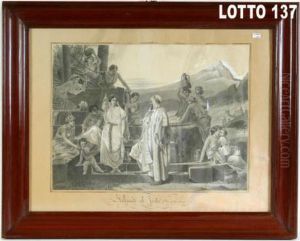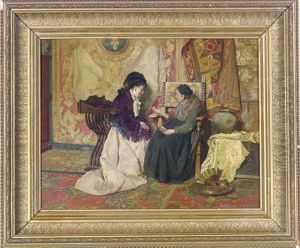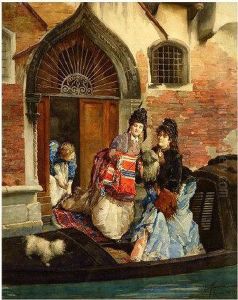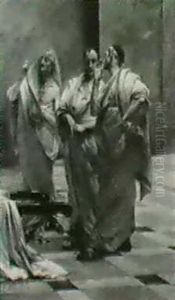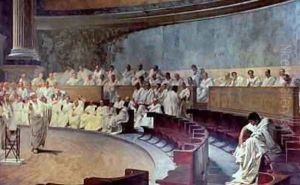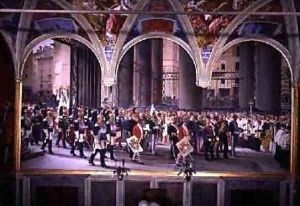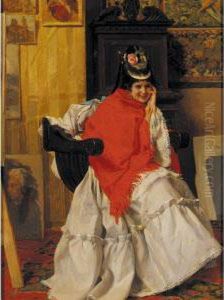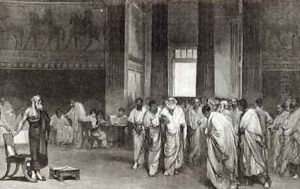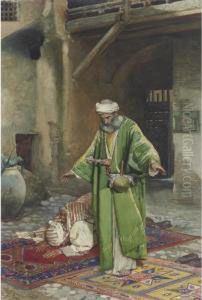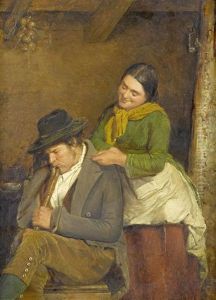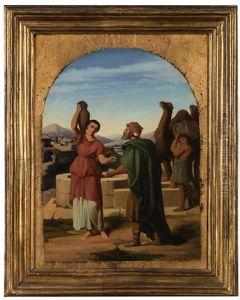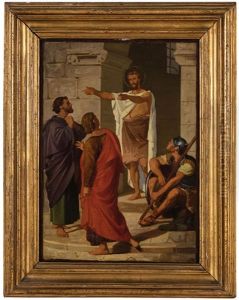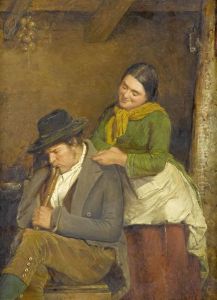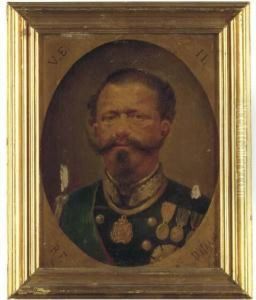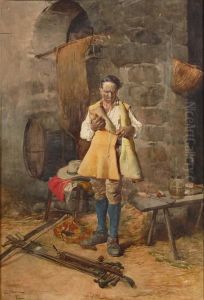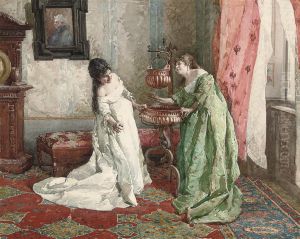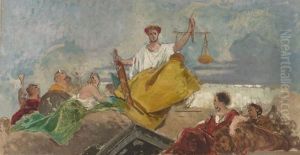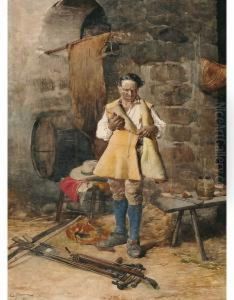Cesare Maccari Paintings
Cesare Maccari was an Italian painter and engraver, known primarily for his historical and fresco works. Born in Siena, Italy, on May 9, 1840, Maccari showed an early interest in art, which led him to study at the Academy of Fine Arts in Siena. He later moved to Rome, which was a hub for artists and intellectuals during the 19th century. Maccari's work is often associated with the Italian Neoclassical and Romantic movements, although his style evolved over the course of his career.
Maccari's most famous work is perhaps the frescoes in the Palazzo Madama in Rome, which is now the seat of the Italian Senate. These frescoes, completed in the late 19th century, depict scenes from Roman history and showcase Maccari's skill in creating dramatic, vivid narratives. His work earned him considerable acclaim and several prestigious commissions.
Aside from his frescoes, Maccari also produced a number of significant oil paintings, watercolors, and illustrations. He was particularly adept at portraiture, capturing the likenesses and personalities of his subjects with a remarkable sense of realism and depth. His portrayal of historical and literary figures, as well as scenes from everyday life, reflects a keen observation of the human condition and a profound understanding of his subjects.
Throughout his career, Maccari was honored with various awards and recognitions. He was appointed a member of the Accademia di San Luca, one of the oldest and most prestigious artistic institutions in Rome. His influence extended beyond his own works, as he also played a significant role in the artistic community, mentoring younger artists and contributing to the cultural dialogue of his time.
Cesare Maccari's legacy is that of a masterful storyteller, whose artistry and craftsmanship breathed life into the historical narratives and characters he depicted. He passed away on August 7, 1919, in Rome, leaving behind a body of work that continues to be admired for its emotional depth, technical skill, and historical significance.

